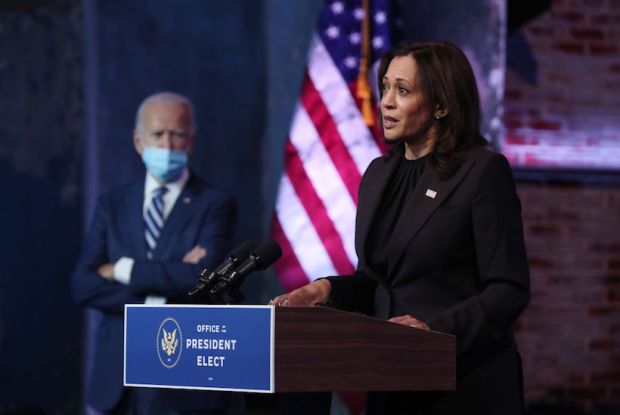Politics used to be confined to newspapers and stuffy government buildings — it was considered an impolite topic of conversation. Now, it has become the norm for political agendas to appear in every aspect of our lives. From movies, to sports, to award shows, every form of entertainment has been hijacked by a political agenda. This phenomenon can’t solely be attributed to the rise of Trump, as celebrities have long used their platform to lecture people and boycotts have been around since the late 1800s. But, today it is ubiquitous, as the professionally outraged vet everyone and everything to ensure they stay on message. As politics has become more partisan, culture has followed suit.
If you would like to grab yourself a nice hot cup of coffee from Starbucks, while you are waiting for an Uber, as you head off to Nordstrom to buy some Ivanka Trump, then forget about it. There are few respites left for those who wish to seek sanctuary from the hectoring of the self-proclaimed morally superior. The greatest spectator sports no longer take place on the field, but online, as people compete to be the first to find the next outrage. Not only are these boycotts nauseating they are likely to be, ineffective. Assistant professor at Northwestern University’s Kellogg School of Management, Brayden King, concluded that, “If you have so many boycotts competing for the public’s eye, you’re diluting the effect of the boycott.”
Australia’s own Nicole Kidman recently found herself on the wrong end of a boycott when, during a BBC interview, she implored people to give Donald Trump a chance, “He is now elected and we, as a country, need to support whoever is the president, because that’s what the country is based on.” Her comments were misconstrued as support for Trump and the Internet activists went into conniptions, many were calling for people to boycott Kidman’s latest movie and Kidman was forced to clarify that she did not support Trump but rather she was just urging people to unite and support the democratic process.
Australian rockers Midnight Oil recently announced that they will be performing a world tour this year. Fans can expect to hear some of their old favourites, as well as a fair amount of lecturing – their website declaring that, “In a dangerously warming world of Hanson, Trump, Petry and Le Pen the voice of Midnight Oil clearly takes on renewed relevance…” With a history of activism, it is no surprise that they will be continuing that theme but, with every celebrity in the world jumping on the activist bandwagon, Midnight Oil obviously did not get the memo that the public are sick of celebrity lectures.
In Australia, we have not yet reached full blown celebrity preaching and boycott mode but, the same cannot be said of our American friends. Unfortunately, even the Super Bowl has been infested with a political agenda. This year, the much talked about Super Bowl ads became less of a competition about who could produce the most exciting advertisement, and more about who could produce the most political advertisement.
Audi’s ad propagated the myth of the wage gap, as they fed into the feminist fable that women in America are second class citizens. Even though, in a brilliant display of self-immolation, no less than 20 minutes after the ad played, Audi managed to disprove the wage gap when they were forced to explain why they pay their male and female employees differently – it is strange that they produced an ad, not about cars, but about politics. Similarly, 84 Lumber, a company which, based on their advertisement I still do not know what product or service they provide, depicted the perilous journey that some take in order to illegally enter America. Budweiser’s ad was also about immigration, as it portrayed the true story of Adolphus Busch, who entered America legally and built a successful company. Still, even a story about legal immigration courted controversy as the hashtag Boycott Budweiser trended, because some felt, the ad was overly pro-immigration.
From a marketing perspective controversy can produce increased sales and traffic as people become more aware of a particular product or brand however, the question remains, why would companies produce advertisements that had little to nothing to do with their goods or services? Will Burns from Forbes magazine suggests that the increased polarisation of American politics plays a role: Burns writes, “Our Polarized Nation can’t look at a door in a wall without controversy. We can’t watch an historic figure’s true account of his emigrating to the U.S. without controversy. Controversy is the new normal just waiting for its next subject.”
The politicisation of the entertainment industry is never more prevalent than at award shows. At the recent Golden Globes and SAG awards celebrity after celebrity stood up and echoed the same hysterical anti-Trump talking points. Besides the fact that it seems to be completely beyond them that, given Trump’s victory and the public support for his policies, their lectures and tears do not work, there is something else that bothers me about these kinds of displays of faux political prowess; Why on earth do they think people want to tune into an award show to be lectured to about politics? If I sit down to watch an award show it is because I want to see who will win best picture, not because I really want to know what Ashton Kutcher thinks about Trump’s immigration policies.
Even if celebrities decide to stick to their day job, they better be prepared to be criticised. Lady Gaga was denounced for not using her Super Bowl half time show to lecture half the American population about how racist, sexist, homophobic and bigoted they are. The Los Angeles Times sulked that, “Lady Gaga misses her Super Bowl moment to say something profound.” The Guardian lamented that, at the recent BAFTA awards, celebrities did not use their platform to lecture the public, “In the event, expectations that the BAFTAS would turn into a Brexit-and-Trump-fuelled protestathon turned out to be … a fat load of nothing. Politically, this was as vanilla as it gets” – to which I say, thank God.
People watch sports, movies and TV shows to be entertained. Similarly, people engaged with particular services, such as Uber, because they believe it is a valuable product that provides a useful service, at an affordable price. There is no need to slap a political agenda onto the side of everything. Not only is it incredibly irritating, it is also highly ineffective.
Got something to add? Join the discussion and comment below.
Got something to add? Join the discussion and comment below.
Get 10 issues for just $10
Subscribe to The Spectator Australia today for the next 10 magazine issues, plus full online access, for just $10.


























Comments
Don't miss out
Join the conversation with other Spectator Australia readers. Subscribe to leave a comment.
SUBSCRIBEAlready a subscriber? Log in